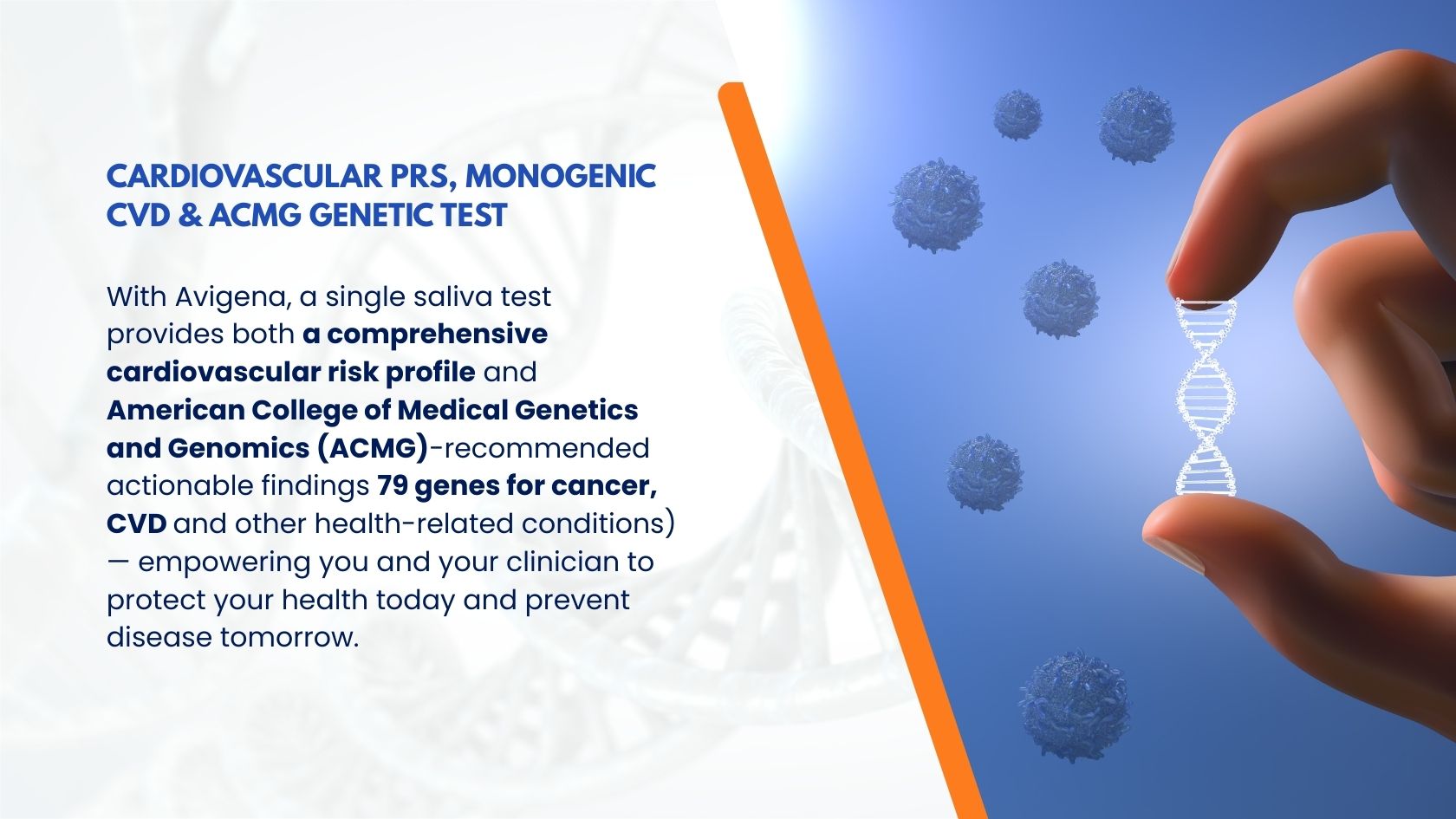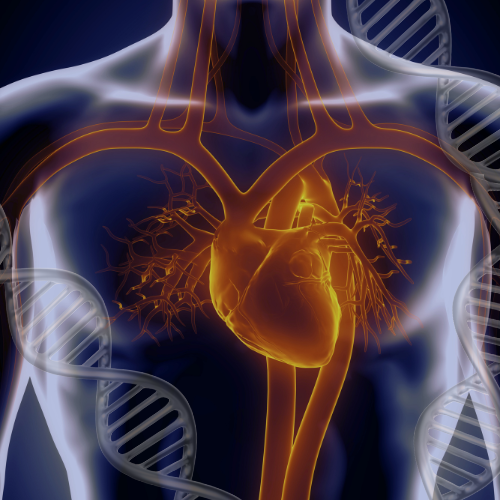One test. Two layers of protection.
Cardiovascular PRS, Monogenic CVD & ACMG Genetic Test


Avigena offers a unique genetic test that integrates:
1- Combined Cardiovascular Risk: Polygenic Risk Scores (PRS): A validated analysis across eight common cardiovascular diseases, including coronary artery disease, arrhythmias, lipid disorders, and thrombosis. Monogenic Cardiovascular Variants: Known high-impact single-gene changes linked to inherited cardiomyopathies, arrhythmias, aortic disease, and familial hypercholesterolemia.
2- ACMG Secondary Findings Panel Includes the 79 genes recommended by the American College of Medical Genetics and Genomics (ACMG). Focuses on reporting pathogenic and likely pathogenic variants in genes linked to medically actionable conditions. Covers cancer predisposition syndromes (e.g., BRCA1/2, Lynch syndrome, Li-Fraumeni), cardiovascular conditions (e.g., HCM, ARVC, long QT, FH, aortic aneurysm), and other preventable health risks (e.g., malignant hyperthermia, metabolic disorders, Wilson disease).

Why This Matters
- PRS adds breadth: capturing the cumulative impact of millions of small genetic variants on common cardiovascular risk.
- Monogenic findings add precision: identifying rare, high-impact mutations with strong clinical guidelines for prevention or treatment.
- ACMG coverage extends beyond the heart: ensuring patients are also informed of hidden, actionable risks for cancer and other preventable diseases.


What you receive
- A personalized report covering both PRS and monogenic risks.
- Clear prevention strategies tailored to your results.
- A virtual genetic counseling session to help you understand your report and discuss next steps with your care team.
- Lab quality assurance: Testing performed in collaboration with the Laboratory for Molecular Medicine at Mass General Brigham Personalized Medicine, with results in 4–8 weeks.
Who Should Consider This Test


